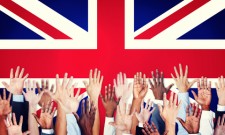Election Fears Impact the British Pound

Fears over a hung parliament at the upcoming UK General Election, to be held on 7 May 2015, helped to weaken the British Pound at the end of last week and experts are now warning that the currency is unlikely to recover until all uncertainty is removed and a new government has been successfully formed.
Sterling slumped as low as $1.4618 on the morning of 10th April, marking a five-year low against the US Dollar and its lowest level since the uneasy days that followed the 2010 General Election.
Despite a very slight recovery to $1.4637 by the end of the week’s trading, pre-election nerves are expected to continue to affect currency traders.
Political Gridlock
Political fears are believed to have played a major role in weakening the pound, as four major opinion polls show the Labour Party now once again ahead of the Conservatives. A hung parliament seems almost certain after the General Election and investors are struggling to weigh up the implications, not knowing whether it will result in a Labour or Conservative led minority government, or coalition.
“The pound has started to come under some pressure in recent days,” explained Michael Hewson, the chief market analyst for the online Forex trading business, CMC Markets. “The prospect of political gridlock in a few weeks’ time [is looking like] a real possibility.”
Short-Term Woes
Meanwhile, a study carried out for Standard Chartered suggests that the pound will only experience short-term woes, although it will not recover until after a new government has been formed, concluding that the intensification of political uncertainty causes a currency drop.
In addition, poor UK industrial output figures are also believed to have contributed towards the weakening of the pound. According to new figures from the Office for National Statistics, both gas and oil production fell sharply between January and February and UK industrial output increased by just 0.1 percent, rather than the anticipated 0.3 percent, casting fresh doubts over the strength of economic recovery.





